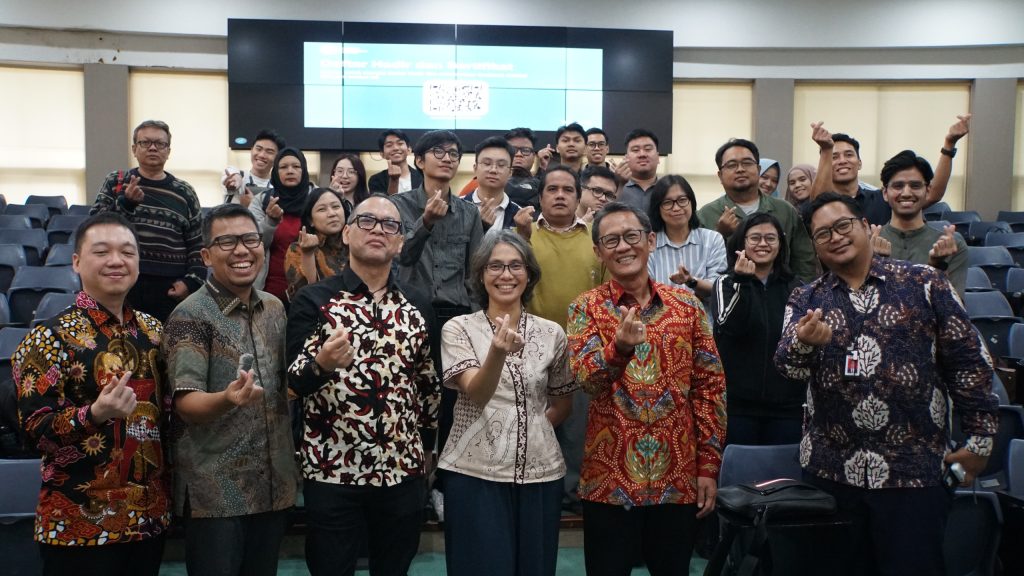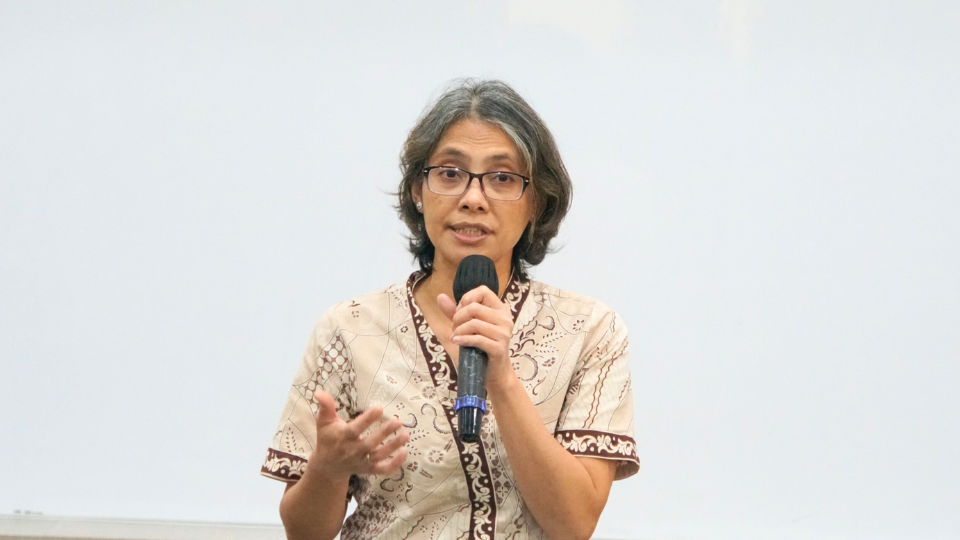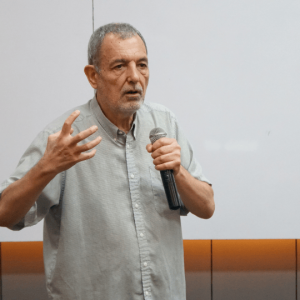The KEHATI Foundation, in collaboration with the Economic and Business Sustainability Institute (EBSI) and hosted by the SBM ITB, held a strategic research dissemination event titled “Identification and Mapping of IDX-listed Issuers and Bond Issuers Based on the Indonesian Sustainable Finance Taxonomy (TKBI) 2024.”
The event brought together representatives from the Financial Services Authority (OJK), academics, investment managers, and capital market stakeholders to discuss the future direction and challenges of sustainable investment in Indonesia.
In his opening remarks, Riki Frindos, Executive Director of the KEHATI Foundation, emphasized the urgency of transitioning from a high- to a low-carbon economy and from a linear to a circular economy to strengthen sustainable economic growth. He highlighted that a key challenge lies in the lack of standardized sustainability benchmarks.
“If these standards are clearer and easier to follow, investors will be more confident in supporting the transition toward sustainability,” he said.
Prof. Dr. Ir. Ignatius Pulung Nurprasetio, M.SME., Dean of SBM ITB, expressed appreciation for the research initiative, noting that the circular economy not only enhances efficiency but also improves quality of life and reduces mortality rates from carbon emissions.
Joko Siswanto, Director of Sustainable Finance at OJK, underscored the importance of the Indonesian Sustainable Finance Taxonomy (TKBI) as a guideline for sustainable economic activities.
“Economic growth cannot be separated from environmental and social factors. Therefore, sustainable finance policies must balance the three pillars: economic, environmental, and social aspects,” he said.
TKBI serves as a classification system for economic activities based on their sustainability level. It plays a critical role in implementing the Financial Sector Development and Strengthening Law (UU P2SK), harmonizing inter-agency policies, and encouraging the growth of green portfolios across industries. TKBI is guided by three core principles: scientific credibility, interoperability, and inclusiveness.
Dr. Yunieta Anny Nainggolan, Associate Professor of Sustainable Finance at SBM ITB and Executive Director of EBSI, presented research findings on 46 issuers and bond publishers in Indonesia’s energy and mining sectors. The study, supported by the KEHATI Foundation, found that 12 entities (approximately 26%) met the “green” criteria and 8 entities (around 15%) met the “transition” criteria based on the 2024 TKBI.
“These findings highlight both significant challenges and opportunities for improvement. The presence of entities that meet the criteria demonstrates that best practices exist and can be replicated,” Yunieta stated.
Two key initiatives that demonstrate KEHATI’s leadership in this effort are:
- Supporting the issuance of Indonesia’s first ESG Bond-based mutual fund; and
- Establishing a Green Equity Index and a Green/ESG Bond Index based on TKBI.
During the panel discussion, Handy Yunianto (Head of Fixed-Income Research at PT Mandiri Sekuritas) and Rio Mulia (Senior Equity Fund Manager at PT Eastspring Investments Indonesia) addressed concerns about the short-term profitability trade-offs often associated with ESG implementation. They suggested that TKBI should consider incorporating incentive mechanisms, such as lower funding costs or tax incentives for companies, and yield or premium benefits tied to ESG performance for investors, to encourage wider adoption of sustainability principles without imposing undue cost burdens.
However, Yunieta emphasized that well-executed ESG strategies can increase global investor confidence and deliver solid long-term returns. Joko added that ESG should be seen as a long-term investment, even if short-term risks seem high. While direct incentives like low interest rates may not be feasible now, blended finance was highlighted as a viable strategy to reduce barriers.
In conclusion, cross-sector collaboration and clear sustainability standards are crucial to advancing inclusive and impactful green investments. Through the TKBI initiative, KEHATI serves as a bridge between industry, regulators, and investors, paving the way for a low-carbon and sustainable economic future for Indonesia.







